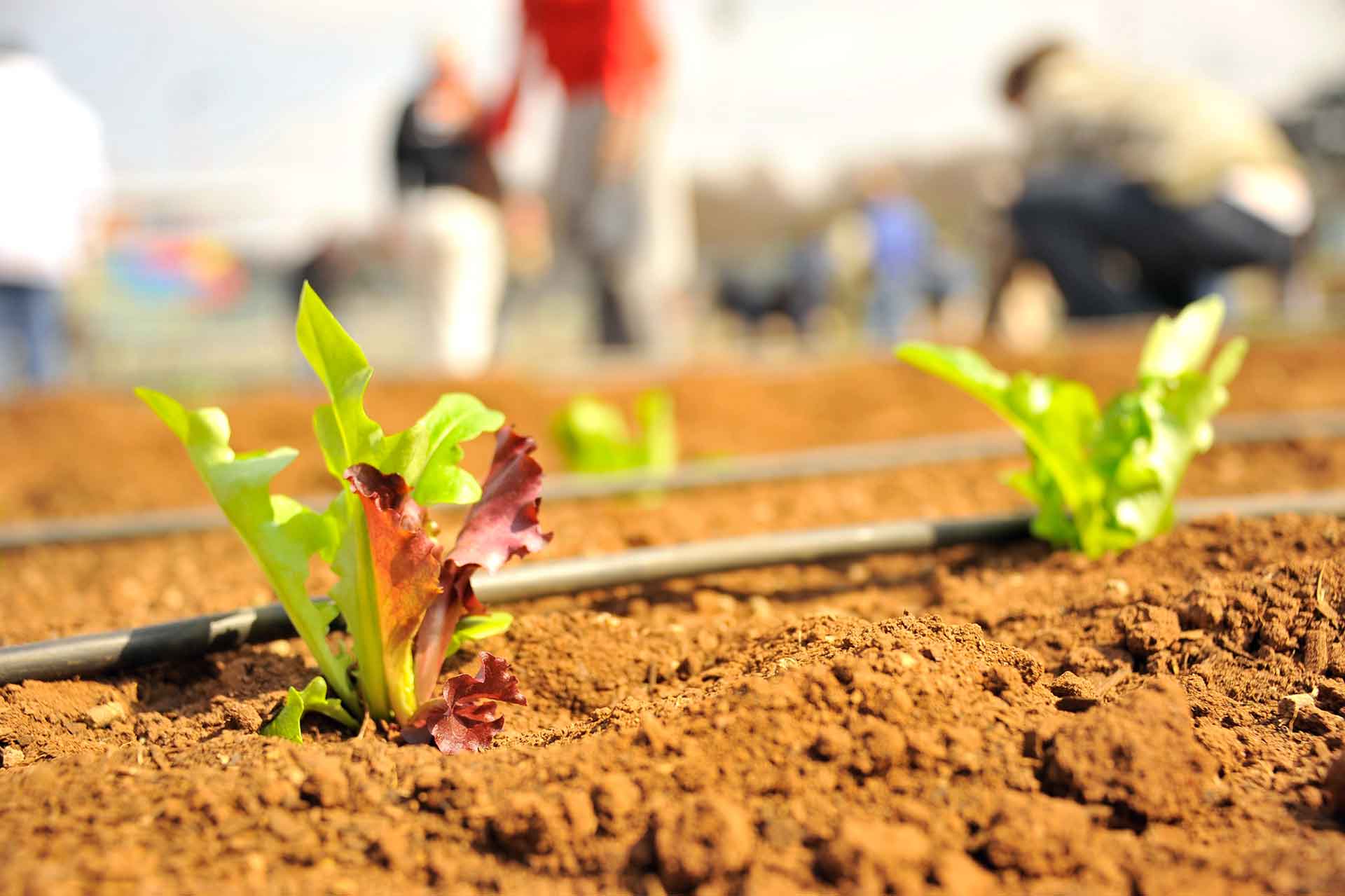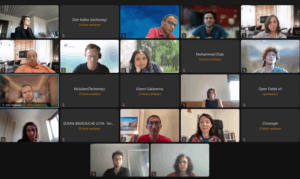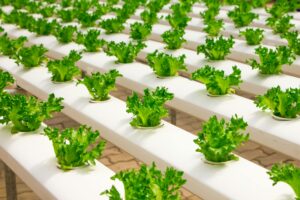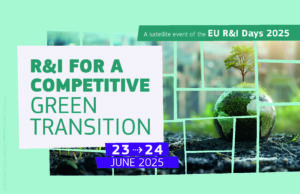Octavi Quintana, director of PRIMA (Partnership for Research and Innovation in the Mediterranean Area).
The Mediterranean is one of the planet’s “ground zero” areas in terms of climate change. It is estimated for the temperature increase here to be 20% higher than the average for the rest of the world. This means that the 500 million people living around Mare Nostrum will have to face the devastating effects of global warming before the inhabitants of other geographical regions. The Mediterranean will be a great test bed for finding solutions to mitigate the effects of the climate crisis in all spheres of human activity and across all ecosystems. The responsibility is enormous, and work must start now on articulating a new social consensus that will make it possible to face a yet unknown scenario. Water must be at the center of the debate, but also its interrelationship with other fundamental vectors such as energy and food production.
The temperature increase in the Mediterranean region has already reached 1.5 degrees Celsius above pre-industrial levels. What is to come – if no additional measures are taken to reduce the greenhouse gases overheating the planet – is much worse: by 2040 this increase will climb to 2.2 degrees and possibly exceed 3.8 in some areas of the basin by 2100. What is more, in just two decades, 250 million people here will suffer water poverty due to droughts.
Water management, the element that allowed the Mediterranean to be the cradle of civilizations, is crucial to guaranteeing the future of life as we know it today. Achieving water security in the Mediterranean region, one of the most water-scarce regions in the world, is undoubtedly a major challenge. Social instability, migration, geopolitical crises, the future of employment and the management of numerous conflicts are directly related to access to water resources, especially in a region such as this, where the primary sector is the livelihood for a large part of the population in many countries.
In addition to the problems arising from climate change, there is now the impact of the COVID-19 pandemic, which has aggravated the socioeconomic situation in the area and has had repercussions in all mechanisms related to water and food systems. Agriculture utilizes 70-80% of the available water in the region. The high demand for water for irrigation generates specific problems of water quantity and quality in the Mediterranean, with water in the southern and eastern countries becoming ever more scarce and likely to suffer the negative impact of climate change and, therefore, the most affected by the situation.
DEBATE ON WATER USE
In this context, it is essential to open a social debate on water use in order to balance a demand that is currently unsustainable. Agriculture, urban areas, industry, tourism and energy make for a demand that is very difficult to balance with the available water supply. It is therefore necessary to establish transparent methods for prioritizing these competing uses. Agriculture has the most to lose, as it is the largest user, but also because in many places water use for farming is not priced, making it difficult to sustain.
Establishing new water governance is a strategic objective for the future of the entire planet, but it is even more urgent in Mediterranean countries. An area that unites three continents, intelligent strategies must be devised to address the new challenges that arise both in cities, where population growth is unstoppable, and in rural areas, where food production must be water and environmentally sustainable. Some approaches to better water management are already available, but need more widespread adoption.
The great revolution yet to occur is a change in vision that allows all the interrelated factors to be comprehensively addressed. Water, energy and food represent the three vertices of an inseparable triangle for life and human development in which synergies flow but also in which tensions are increasingly on the rise. Knowing and exploiting the interconnections and taking a holistic approach to ecosystems is vital for a productive paradigm shift and meeting the challenges of the Mediterranean area. Therefore, the social debate to discuss the demands to be prioritized must necessarily address the so-called WEFE (Water, Energy, Food and Ecosystems) nexus.
The region’s population growth is exacerbating tensions and therefore there is an urgent need to make decisions that have a major social, economic, political and environmental impact. Thus far, the implementation of the aforementioned nexus of elements in the Mediterranean has been limited, mainly due to the traditional approach to resource planning and management (“the silo mentality”) and the lack of experience and knowledge of the benefits that an integrated management system can bring. But certainly, the links between the different sectors (water, food, energy, as well as ecosystems) need to be better explored and integrated into management policies and practices.
In this context, research and innovation are of fundamental importance, as they can provide evidence to policy and decision makers that the WEFE nexus is the right approach for a more integrated, balanced and equitable means of managing resources. Any solution must also include sustainability as a key factor in a region where climate change and demographics are increasing the demand for water. Sustainability is already an essential part of all research and innovation efforts in the so-called WEFE approach.
PRIMA, sustainable innovation in the face of new challenges
PRIMA (Partnership for Research and Innovation in the Mediterranean), based in Barcelona, is a catalyst for scientific talent and stakeholders in the water sector to sustainably and efficiently innovate and optimize all water uses. It is an initiative of 19 riparian countries, 11 EU and eight non-European countries, which has already funded the work of 1,200 scientific teams. With a budget of nearly 500 million euros, coming from the contributions of its members and the EU, it finances research and innovation projects, all of which necessarily include teams from both shores of the Mediterranean. In addition to water management, PRIMA promotes innovation in agriculture and throughout the value chain of the agri-food system.
Sustain-COAST, led by the Technical University of Crete (TUC) and composed of a multidisciplinary team from six countries (Germany, Greece, Italy, Tunisia, Turkey and France), is one of our flagship projects. It seeks to contribute to improving the governance of Mediterranean water resources through a collaborative research project. It aims to explore innovative approaches to the governance of coastal aquifers among multiple water users and beneficiaries, taking into account the uncertainties arising from changing climatic conditions. The goals are to improve the management and mitigate pollution of water resources, apply principles of good governance (equity, legitimacy, efficiency, transparency and accountability), as well as to promote decentralization, increase the participation of civil society in decision-making and foster strong public-private partnerships.
For its part, WATERMED 4.0, a project coordinated by the University of Murcia (UMU) involving five countries (Spain, Algeria, Germany, Morocco and Turkey), seeks to develop an integrated decision support system based on the Internet of Things (IoT) and Big Data. Digitization is put at the service of Mediterranean agriculture and the management of the entire water cycle thanks to a platform with open access to all stakeholders. Data will be obtained and processed not only from a technological or sanitary point of view, but from an integrated socio-economic perspective that includes reclaimed water, reuse and remote sensing communication protocols, as well as the analysis of agro-photovoltaic applications (APV) with respect to the reduction of irrigation needs.
However, without managing demand, technology alone does not have the capacity to turn the situation around. Technology is not the solution to the water problem. It can help, but a social debate is essential to decide how to address demand. Within agriculture, one of the major users of water, it must be understood that water is expensive, but the most expensive water there is the one that does not exist. Not having water is the most expensive thing of all. We have to put a price on water. It cannot be free because it is a precious commodity.
Water must be used as sustainably as possible; water sources from rainwater, reservoirs, aquifers and desalination plants must be combined in the most reasonable and sustainable way possible. It is necessary to think integrally and balance all water sources, ensuring that the users that require a greater quantity of the resource be taxed to be adjusted to its real value.
Undoubtedly, technology helps, but it will not, by itself, solve the water problem. We must also avoid planting unsustainable crops. Enabling more irrigation in dry countries like Spain does not seem very sustainable. Irrigation will have to be reflected in the final price of products, reflecting its cost.
Reuse
For its part, water reuse is essential within the idea of a circular economy in which everything has more than one life, and it should play a very important role in alleviating the enormous pressure on water resources created by climate change, agriculture and population growth throughout the Mediterranean.
Reuse has important environmental benefits, relieves pressure on the environment generated by the discharge from treatment plants and is a reliable water supply, more so than fresh water, which can be affected by seasonal issues. However, giving new lives to water is a practice that is deployed at levels far below its potential due to a lack of awareness of its benefits, resistance among potential users and the general public, and a lack of regulations that clearly support it.
The future of the Mediterranean, and of the entire planet, depends on reaching a new consensus on water and learning to manage this resource in an intelligent and integrated manner, thus building a cohesive, participatory and sustainable society. Science can help us to understand all the interrelationships at play and help us to make the best decisions. The climate challenge is forcing us to take a new global view.
Octavi Quintana, director of PRIMA (Partnership for Research and Innovation in the Mediterranean Area).




